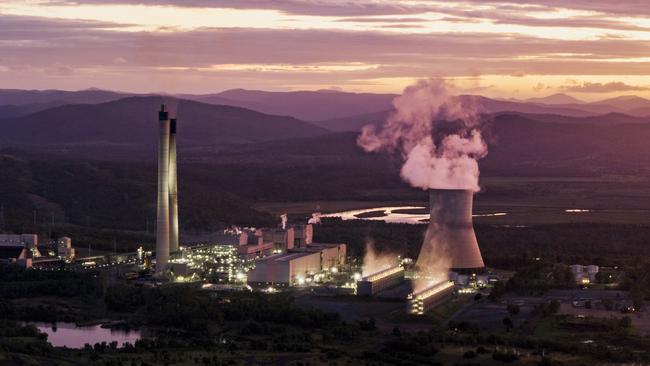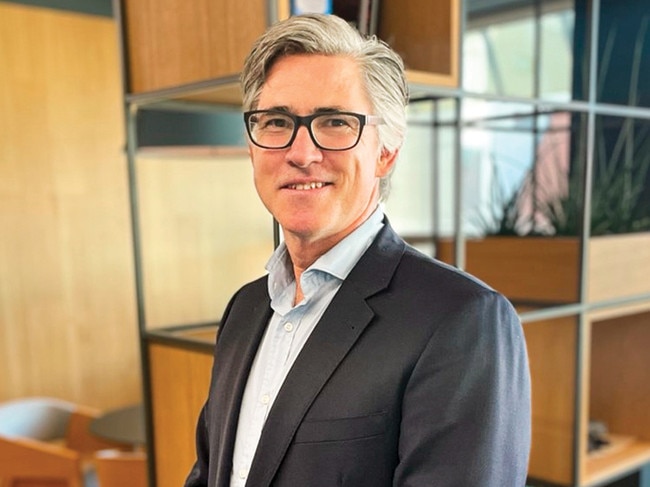Power plant owner 7GI calls for reality check on retirement of coal
The owner of two major coal-fired power plants in Australia wants the fossil fuel to stay in the energy mix for longer to ensure keeping the lights on.

The owner of two major Australian coal power stations said Labor may need to keep the fossil fuel generation running for longer than planned amid concern over delays hitting ambitious renewable energy targets.
Czech-owned Sev.en Global Investments (7GI) – which on Friday bought a half stake in Queensland’s troubled Callide C plant and also owns NSW’s Vales Point facility – called for a reality check on the retirement of coal from the power grid given uncertainty about the energy transition.
“The transition is going to take much longer. So they should need to be in the market for a longer period than what public opinion or politics has been stating,” 7GI Global Investments’ country manager Mark Sykes told The Australian. “We think that these assets will actually be a critical part of the transition.”
Federal Labor has pledged to double current renewable energy supplies to 82 per cent by 2030 but fears are growing the industry may fall short of meeting that target given development and planning delays building large-scale projects.
7GI has already extended the life of Vales Point for a further four years until 2033 and Mr Sykes said the closure of other facilities through the national electricity market may need to be delayed depending on their individual age and condition.
“What we want to do is we want to ensure that reliability. We are not hinging our sole participation in the energy market at the moment just on coal, which is why we’re looking at projects like battery storage,” Mr Sykes said.
“We believe that coal will be in the mix but how it performs long term – whether it’s a capacity participant or whether it’s a base load dispatchable one – will evolve. But certainly I believe that there will be a need for it longer term, rather than what’s currently considered over the next five years.”

The Czech company last week acquired and recapitalised a 50 per cent stake in Callide C, just weeks after the coal-fired generator was badly damaged by a powerful “pressure spike” inside its boiler. Queensland Treasurer David Janetzki has also pinned the state’s future energy supply on hopes coal plants will stay open for more than a decade.
7GI views itself as the “best holders” of fossil fuel power stations through the transition but said talks were ongoing with Queensland officials over any set date for the eventual closure of Callide C.
7GI is now free to press on with pursuing its partner at Callide C, the state-owned CS Energy, for the losses caused by the crippling failures in 2021 that put the plant out of operation for years when 7GI held an indirect stake in the facility.
While compensation could run into hundreds of millions of dollars, Mr Sykes said ongoing investigations at Callide C would first need to be concluded before assessing any dollar exposure.
“Whilst there is an investigation ongoing, it’s a bit premature to talk around placing responsibility or quantifying value [on Callide C],” Mr Sykes said. “We want to make sure there’s due process in identifying how these things are rectified, and if something comes out of it we’ll consider that.”
Callide power station is in central Queensland, near the town of Biloela, and has two power plants – B and C – which each have two generating units. CS Energy owns and operates Callide B, and it owns Callide C in a 50-50 joint venture with 7GI.
Concerns have been raised over the ongoing issues at Callide ultimately being paid for by higher bills for households, but the power executive said it expects falling prices as capacity is delivered online.
“Operating at nameplate capacity should actually drive power prices down for Queensland due to additional availability,” he said.
More broadly, the 7GI country chief said a mix of energy sources including renewables, gas and coal all had a part to play in delivering energy to users.
“We don’t have to roll out in renewables as fast as what we have. Gas markets can be challenged, especially with gas availability. That is the highest cost of energy at the moment in gas,” Mr Sykes said.
“So if we’re looking at peakers and others units to be able to stabilise the system, or to be able to provide that shoulder power generation, there’ll be a high pricing. There’s a place there for coal-fired power, and certainly that’s what we are seeing.”
The Queensland LNP government will spend $1.4bn over five years on maintenance of government-owned power stations in Queensland, including $400m this financial year on upgrading Callide B1 and B2.
Mr Janetzki in April denied covering up an explosion at a controversial government-owned power plant after failing to declare the blast during a major energy policy speech lauding coal-fired power for securing the state’s electricity future.
Mr Janetzki called the “reliability of our coal-fired generators … critical” as he tore up Queensland’s renewables targets last month.



To join the conversation, please log in. Don't have an account? Register
Join the conversation, you are commenting as Logout